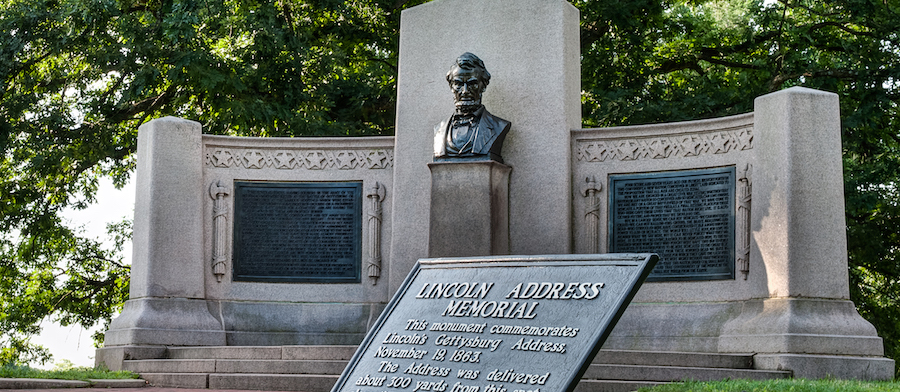The Legacy of Abraham Lincoln
Perhaps best known as the president who freed the slaves, Abraham Lincoln supported many important bills during his terms as the nation's leader from March 4, 1861 through April 14, 1865. This far-reaching legislation attests to the character and vision of the man who single-handedly preserved the Union during the Civil War and began the difficult work of restoration even before the final battle ended.
Emancipation of Slaves
As the Great Emancipator, Lincoln got an early start. Seven years before he was elected president, he made a speech that criticized what he considered to be pro-slavery legislation. The Kansas-Nebraska Act, which had become law six months before Lincoln's speech, made the two territories into states. It left the question of slave ownership to each state's government. Lincoln believed giving them that choice to be immoral.
At the time of the speech, Lincoln was working as a lawyer and running for Congress. Later, as a Congressman for Illinois, he argued for freeing the slaves in Washington D.C. However, that would not happen until 1862, when Southern representatives were not present in Congress to vote against it.
January 1, 1863, when Lincoln's Emancipation Proclamation went into effect, all slaves where the Union Army had been victorious became free men and women. In 1865, the Thirteenth Amendment, which Lincoln had championed, made slavery unconstitutional.
Preservation of the Union
Although abolishing slavery was arguably Lincoln's greatest accomplishment, it was a part of his overarching effort to reunite the states after the Civil War. He worked hard to ensure that the country not only survived the war but would heal as well. He ordered reconstruction to begin in some states while battles raged on in others.

In the Gettysburg Address, which the President delivered in November 1863, he reinforced the ideals of nationalism, equality, liberty and democracy, all ingredients of a united country. The speech would become one of the most well-known in U.S. history, and the reunited country would survive long after the Civil War ended.
The Homestead Act
The Homestead Act, which President Lincoln's signed into law in May 1862, encouraged Americans, including former slaves, to go west with the promise of 160 acres of land for those who resettled. Upon paying a nominal filing fee, homesteaders had to live on their land for five years or more before they owned it free and clear. The law provided another option too. After residing on their land for one year, homesteaders could purchase it for $1.25 per acre. By 1900, more than 80 million acres of previously government-owned land had passed into private ownership, thanks to the Homestead Act.
Pacific Railways Act
President Lincoln approved the Pacific Railways Act in July 1962. Another law designed to open up the American West to settlers and commerce, the Act sponsored the construction of transcontinental railway and telegraph lines through the sale of government bonds and large land grants. In what historians consider to be among the greatest technological feats of the 19th century, the railway reduced the time it took to travel cross-country from months to a matter of days.
The Revenue Acts
Lincoln approved the nation's first income tax in 1861 when he signed the Revenue Act into law. Along with an import and a property tax, the Act allowed the government to levy a three percent tax on the income of Americans who earned $800 or more per year. It was problematic because only three percent of Union citizens made that much, and the government did not have an efficient collection system in place. The following year, a second Revenue Act included alcohol and tobacco taxes, a progressive income tax according to levels of income, and the creation of the Internal Revenue Service.
Department of Agriculture
Approved by President Lincoln in 1862, the purpose of the USDA was to help educate rural farmers and develop a strong agricultural system for the United States. Lincoln foresaw that USDA would help farmers get the highest yield from their fields in the most efficient manner. As the years went on, the department would provide rural farmers with updates on the latest technology to help them navigate the quickly changing landscape.
Other Legislation in the Lincoln Legacy
In 1864, Lincoln approved the Yosemite Grant Act, which in effect established the country's first national wilderness area and laid the groundwork for the future National Parks system. The first paper currency entered into circulation during the Lincoln presidency. Also, although Lincoln cannot take credit for creating the Thanksgiving holiday, he did declare it would take place on the last Thursday each November, a day Americans continue to observe today.
